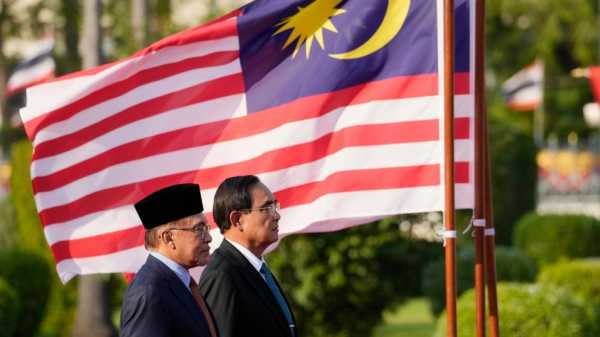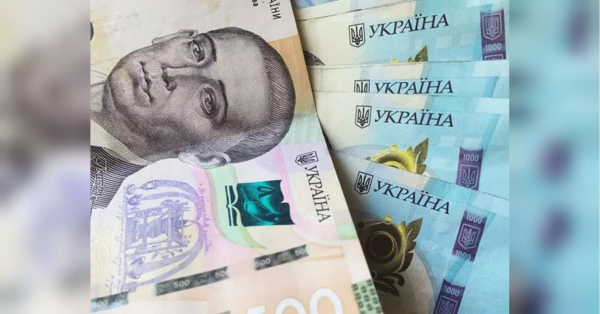
Bangkok — Malaysian Prime Minister Anwar Ibrahim said Thursday that his government is committed to helping Thailand solve a Muslim insurgency in its far south but does not condone the use of violence to end the conflict.
Anwar spoke after meeting in Bangkok with his Thai counterpart, Prayuth Chan-ocha. It was Anwar's first visit to his country’s northern neighbor since he took office last November. He has previously met with leaders from Indonesia, Brunei and Singapore.
Their talks covered a range of economic and security issues, but a top joint concern is the Muslim separatist insurgency in Thailand’s deep south, which has taken the lives of about 7,000 civilians, soldiers, government workers and rebels since it flared in 2004. The fighting in Thailand’s three southernmost provinces, the only ones with Muslim majorities, is intermittent but brutal, with the separatists carrying out drive-by shootings and bombings, and the government accused of torturing suspects and other abuses.
Southern Thai Muslims — whose ethnicity, culture and language differ from the Buddhist majority — believe they are treated as second-class citizens and have the sympathy of many Malaysians, about 60% of whom are Muslim.
Malaysia has hosted and facilitated peace talks between the separatist groups and the Thai government, but little progress has been made. Anwar has expressed particular interest in the efforts and appointed a former top Malaysian general to be the chief facilitator.
Addressing reporters after meeting with Prayuth, Anwar said his country is committed to assisting Thailand in finding a solution to the violence in the south.
“It is unfortunate because these small skirmishes have led to a lot of tensions, some sort of resentment and distrust, so we have to appeal to all forces both in Thailand, and in the south and even some in Malaysia, to understand and appreciate that peace must be paramount, of paramount consideration,” he said.
“I come here with a very clear, categorical message that the government of Malaysia will not condone any sort of violence to resolve any conflict,” Anwar said. “We will exercise our right as friends … to express our concerns, our legitimate concerns, whilst acknowledging that south Thailand is purely an internal issue within Thailand. But it is our duty as good neighbors and family to do whatever is required and necessary to facilitate the process.”
Anwar, referring to what he called the “trust deficit” between southern Thai Muslims and the Thai authorities, said he believes it is his duty to see that their concerns about religion, culture, and language are addressed. He added that Prayuth agrees on the importance of economic development in the region.
Anwar also said that the two leaders discussed “the more contentious issue” of Myanmar, where violence continues after the military seized power from the elected government of Aung San Suu Kyi in 2021. He called for Thailand and the Association of Southeast Asian Nations to come up with viable actions to ease, if not solve, the crisis because of its ramifications throughout the region.
“Both leaders also had the opportunity to exchange views on the current international and regional challenges and expressed satisfaction with the longstanding cordial relations between Thailand and Malaysia," Thailand said in its statement about the meeting. “They reaffirmed their commitment to further deepen the bilateral cooperation and collaboration at all levels, and to seek new cooperation for Thailand-Malaysia border area to become peaceful and prosperous ‘Golden Land.’”
It said the two leaders set a goal of achieving $30 billion in bilateral trade by 2025, in part by strengthening linkages between special economic zones in Thailand’s southernmost provinces and Malaysia’s northern states. The zones are meant to promote development through industrial and agricultural projects supported by infrastructure improvements.
Sourse: abcnews.go.com






